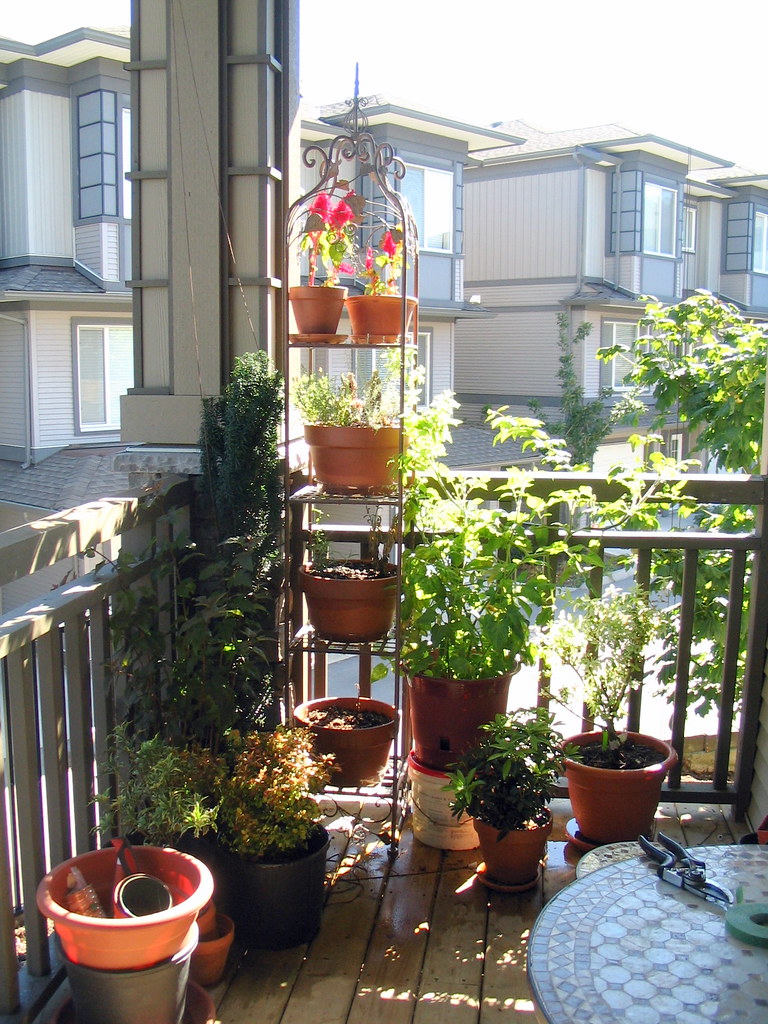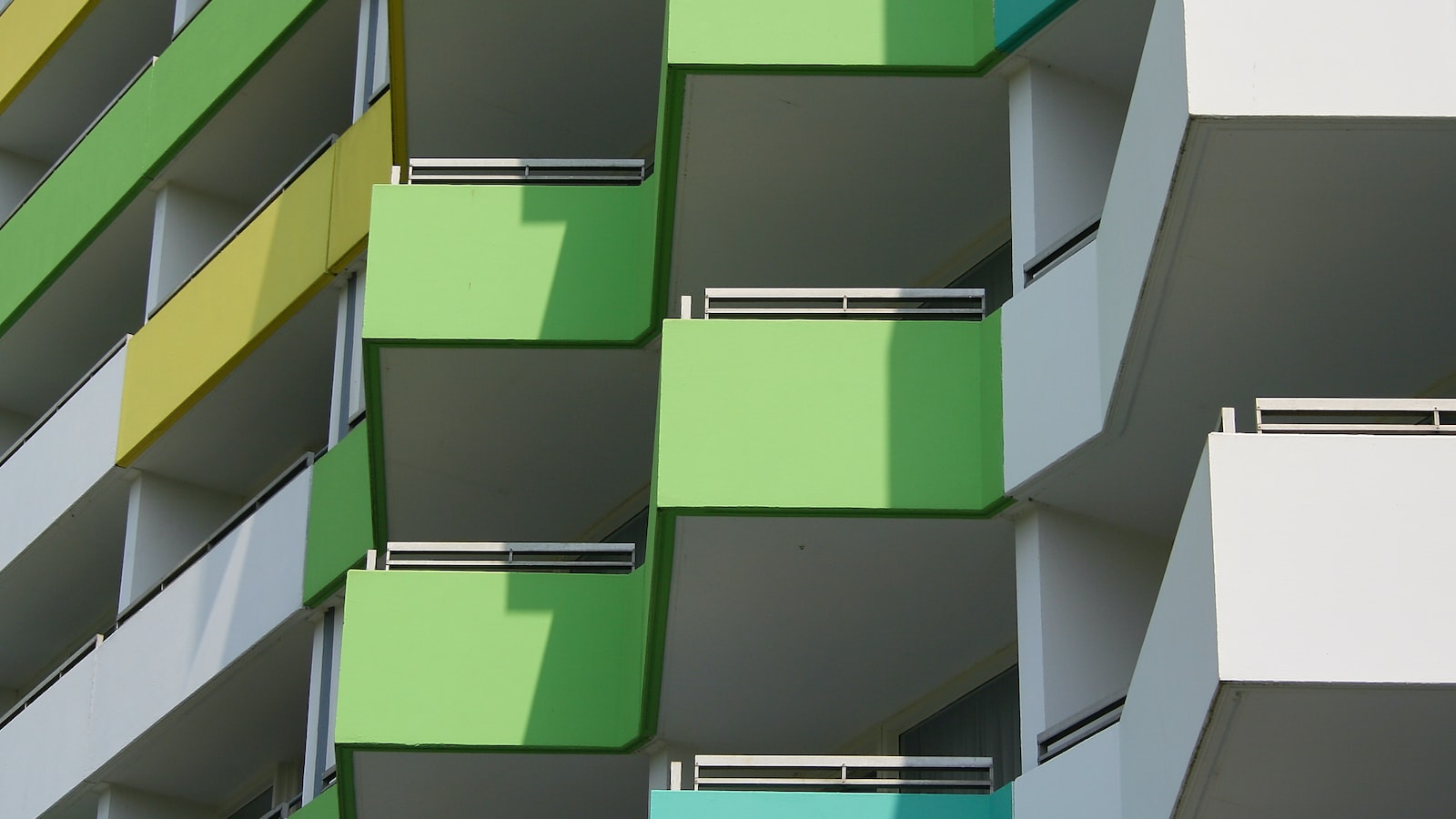Step outside onto your balcony, where a world of possibilities awaits; a canvas filled with lush greens, vibrant flowers, and the melodious songs of birds. In the pursuit of a greener lifestyle, we often believe that a smidgen of land is the secret ingredient to reducing our ecological footprint. Yet, what if we dared to reinterpret the boundaries of sustainability by embracing the unlimited potential of our humble balconies? Enter the enchanting world of the balcony garden, where nature effortlessly intertwines with urban living, allowing us to reduce our impact on the environment without sacrificing the joys of nature. Discover how a small patch of paradise in the sky can become your haven for eco-consciousness, as we unravel the secrets of reducing your ecological impact through the magic of a balcony garden.
The Environmental Benefits of a Balcony Garden: Reducing Your Ecological Footprint
One of the best ways to reduce your ecological footprint is by utilizing a balcony garden. This small but mighty green space brings numerous environmental benefits that have a positive impact on both the planet and your own well-being.
1. Improving air quality: A balcony garden acts as a natural air filter by absorbing carbon dioxide and releasing oxygen. The plants help to remove harmful toxins from the air, such as formaldehyde and benzene, effectively improving the overall air quality of your surroundings. Additionally, the increased vegetation creates a microclimate that can help reduce urban heat island effect, making your immediate environment cooler and more pleasant.
2. Conserving energy: By having a balcony garden, you can create a natural barrier against heat and cold. The plants on your balcony act as insulation, reducing the need for excessive air conditioning or heating. This not only saves energy, but it also reduces greenhouse gas emissions. Moreover, the shade provided by your lush greenery can prevent direct sunlight from entering your home, which further decreases the reliance on artificial lighting, resulting in additional energy savings.

Implementing Eco-Friendly Practices in Your Balcony Garden: Practical Tips and Insights
Creating an eco-friendly balcony garden not only allows you to enjoy the beauty of nature in a restricted space but also contributes to reducing your ecological footprint. By implementing sustainable practices, you can minimize waste, conserve resources, and support a healthy ecosystem. Here are some practical tips and insights to help you reduce your environmental impact and transform your balcony garden into a sustainable oasis:
<h3>1. Choose Organic and Local:</h3>
<p>Opt for organic seeds, plants, and soil to ensure that harmful chemicals are not used in your garden. Additionally, support local nurseries to reduce transportation emissions and promote the growth of native plant species.</p>
<h3>2. Compost and Recycle:</h3>
<p>Create a composting system on your balcony by using a small compost bin or vermicompost. This allows you to recycle kitchen scraps and transform them into nutrient-rich soil for your plants. Remember to separate recyclable materials and dispose of them responsibly.</p>
<h3>3. Water Wisely:</h3>
<p>Conserving water is crucial for an eco-friendly garden. Install a drip irrigation system or use a watering can with a rose attachment for targeted watering. Collect rainwater in barrels or buckets to minimize water waste.</p>
<h3>4. Embrace Beneficial Insects:</h3>
<p>Invite beneficial insects like ladybugs, lacewings, and bees to your garden. They act as natural pest control, reducing the need for harmful pesticides. Offer them a home by installing insect hotels or leaving some areas of your balcony wild.</p>
<h3>5. Go for Natural Pest Control:</h3>
<p>Avoid using harsh chemical pesticides that harm beneficial insects and pollute the environment. Use natural alternatives like neem oil, garlic spray, or companion planting to deter pests and keep your plants healthy.</p>
<h3>6. Maximize Vertical Space:</h3>
<p>If you have limited horizontal space, consider utilizing vertical gardening techniques. Hang planters, use trellises, or invest in a vertical garden system. This way, you can grow a variety of plants while saving space.</p>
<h3>7. Introduce Native Plants:</h3>
<p>Native plants are well-adapted to the local climate and require less maintenance. They provide food and habitat for local wildlife and help preserve biodiversity. Incorporate native plants into your balcony garden to support the local ecosystem.</p>
<h3>8. Avoid Single-Use Plastics:</h3>
<p>Minimize plastic waste by opting for biodegradable pots, planters, and gardening tools. Use natural materials like clay, wood, or bamboo instead. Choose sustainable alternatives for plant labels, such as recycled paper or stone markers.</p>
Maximize Sustainability: Choosing the Right Plants and Techniques for Your Balcony Garden
When it comes to reducing your ecological impact, utilizing a balcony garden can be a game-changer. By carefully selecting the right plants and employing sustainable techniques, you can create a thriving green oasis that not only beautifies your space but also contributes to a healthier planet. Here are some tips to help you maximize sustainability in your balcony garden:
- Choose native and drought-resistant plants: Opt for plant species that are well-suited to your local climate and require minimal watering. Native plants have adapted to the environmental conditions of your area and are often more resilient and low-maintenance.
- Implement composting: Reduce waste and enrich your soil by composting kitchen scraps and plant debris. This natural fertilizer will nourish your plants, reduce the need for chemical fertilizers, and promote overall soil health.
- Practice water conservation: Minimize water wastage by watering your plants early in the morning or late in the evening when temperatures are cooler, reducing evaporation. Install a drip irrigation system to deliver water directly to plant roots, avoiding unnecessary runoff.
- Encourage biodiversity: Create a welcoming environment for beneficial insects, birds, and other wildlife by incorporating a variety of plants, flowers, and even a small water feature. This diversity will help control pests naturally and support a balanced ecosystem on your balcony.
- Utilize vertical gardening: Make the most of limited space by creating vertical gardens using hanging baskets, trellises, or wall-mounted planters. This technique not only adds visual interest but also maximizes your planting area and allows for better air circulation.
- Practice organic pest control: Avoid harmful chemicals by opting for natural pest control methods. Introduce predator insects like ladybugs or utilize homemade remedies such as garlic spray or neem oil to keep pests at bay without compromising your garden’s sustainability.
By following these eco-friendly practices, you can create an urban oasis on your balcony that not only brings you joy but also contributes to a greener, more sustainable world.

Taking Green Living to New Heights: Transforming your Balcony into an Eco-Oasis
Transformez votre balcon en votre propre oasis écologique et découvrez comment réduire votre impact écologique grâce à un jardin de balcon. En utilisant des astuces simples et innovantes, vous pouvez créer un espace vert qui favorise la biodiversité, préserve les ressources naturelles et embellit votre environnement extérieur.
Commencez par choisir des plantes adaptées à votre balcon en fonction de la lumière naturelle dont elles ont besoin et de leur résistance aux conditions climatiques locales. Optez pour des plantes indigènes qui favorisent la biodiversité locale. En mélangeant différentes espèces de plantes, vous augmentez la résilience de votre jardin de balcon. Pensez à utiliser des pots en matières recyclées et n’oubliez pas de récupérer l’eau de pluie pour arroser vos plantes et ainsi économiser les ressources hydriques. Privilégiez des engrais naturels et évitez les produits chimiques nocifs pour l’environnement. Enfin, ajoutez des éléments décoratifs tels que des nichoirs et des mangeoires pour attirer les oiseaux et les insectes bénéfiques. Votre balcon se transformera en refuge pour la faune locale tout en créant un écosystème équilibré.
In conclusion, a balcony garden truly presents a world of possibilities when it comes to reducing your ecological footprint. By taking advantage of this small but mighty space, you can actively contribute to a greener and more sustainable planet.
From growing your own herbs and vegetables to attracting beneficial wildlife, a balcony garden allows you to reconnect with nature in the heart of the urban jungle. Not only does it provide a tranquil sanctuary where you can unwind and find solace, but it also showcases your commitment to environmental stewardship.
By embracing eco-friendly practices like composting, using organic fertilizers and conserving water, you can create a miniature ecosystem that thrives without harming the environment. The limited space of a balcony garden challenges us to think creatively and encourages resourcefulness, reminding us that our actions, no matter how small, can make a significant impact.
Moreover, a balcony garden serves as a beautiful reminder that living sustainably doesn’t require grand gestures or major lifestyle changes. With some dedication and a touch of green thumbs, anyone can participate in the movement towards a more eco-conscious future.
So, whether you’re a seasoned gardener or a novice with a passion for sustainability, consider transforming your balcony into a green oasis. Embrace the wonders of nurturing life, minimizing waste, and appreciating the fragile beauty that nature offers us. Let your balcony garden not only reflect your personal style but also be a symbol of your commitment to reducing your ecological impact, one tiny garden at a time.
Remember, sustainable living begins with a single seed, a single plant, and a single person. Together, let’s cultivate a better tomorrow and preserve the delicate harmony between human existence and the natural world.




